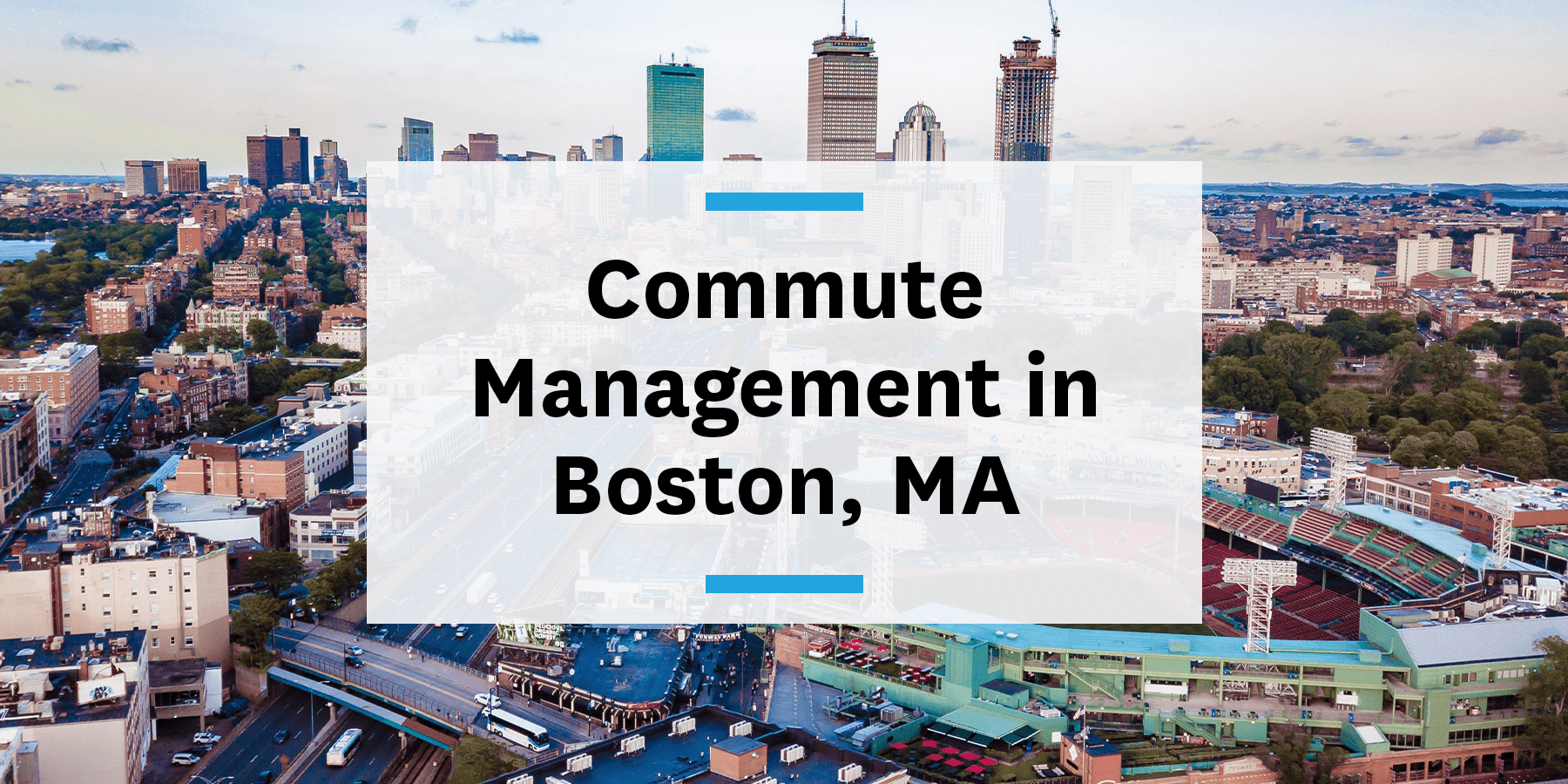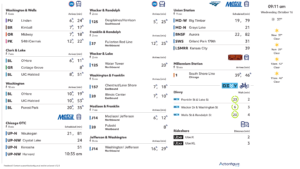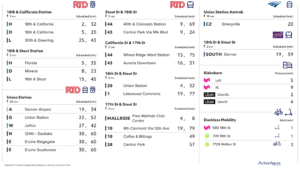
Creating a return-to-work plan is necessary to ensure a safe experience for your employees. It’s also a perfect opportunity to create a comprehensive commute management strategy not just for the near future, but as a permanent company practice.
Boston has a plethora of mobility and transit options for employers to offer benefits for their employees.
Commute management
First things first, let’s cover what exactly commute management entails. Commute management is the practice of employers playing an active role in helping employees create an optimal, low-stress commute in order to increase happiness and retention.
That means combining commuter benefits, transportation demand management, and employee engagement to ensure each employee’s commute is represented in your strategy. It’s more than just offering a subsidized transit pass or a corporate bikeshare membership. But don’t worry, we’re going to cover how you can utilize existing infrastructure and mobility in Boston to create a successful commute management strategy for your workplace.
New infrastructure
The city just announced the details of the Healthy Streets Initiative at the end of May. This initiative includes a network of protected bike lanes downtown and the Public Garden, extended bus stop waiting areas, as well as sidewalk and street parking areas for outdoor restaurant seating.
The Massachusetts Bay Transport Authority (MBTA) has been running a pilot program to test the impact of red dedicated bus lanes on streets around greater Boston. As an extension of the Better Bus Project, this pilot has transformed 14 miles of road into dedicated bus lanes. The project as a whole is a 5-year, $8 billion plan to renovate stations and stops, improve fare collection systems, and increase ridership on the bus and subway.
TDM requirements
In conjunction with reopening plans and regulations, the state of Massachusetts requires employers of certain sizes to follow commuting guidelines. Companies with 250 employees or more, as well as education institutions with 1,000 employees and students or more combined, need to adhere to the Massachusetts Rideshare Regulation. That means these employers or institutions need to have a plan in place to lower their drive-alone commute rate to less than 25 percent.
In addition to meeting the drive-alone commute goal, these organizations also need to take the following actions:
- Survey current commuting patterns by their employees
- Identify available commuting options
- Offer options and incentives for reducing drive-alone trips
- Review how commute patterns change as a result
Public transit
As we mentioned above, there are major infrastructure projects in the works to improve Boston’s public transit systems. These improvements can’t be completed fast enough for the region! Boston has some of the worst rush-hour traffic in the country, and there needs to be a change. Luckily, that’s exactly what these new projects provide.
It’s not enough for infrastructure projects to happen— commuters need to actually take use them. Fortunately for Boston commuters, the MBTA provides a simple-to-set-up Perq for Work pass to allow commuters to put pre-tax money toward their public transit commutes. One more advantage is that this pass works on the subway, commuter rail, buses, and ferries run by the MBTA.
Bikes
Right now, it seems biking to work is going to see a big bump, especially during the summer and fall. Bike and electric bike sales have skyrocketed in the midst of quarantine — and for good reason. Bikes allow riders to safely distance themselves from others while efficiently riding to their destinations. There are certain initiatives and programs you can implement to help your employees transition to biking to work.
Company-run bike program
We’ve heard from companies and industry leaders about the implementation of company-run bike rental programs. Making the commitment to buying a bike is an obstacle to employees biking to work — what if they don’t like it and have spent the money on a bike already? Bikesharing has made it easier to try out, but unless an employee lives and works close to docks, it may not always be the best commuting option.
A company-run bike rental program means employees have access to a bike whenever they need it. This kind of program gives employees the resources and time to try out bike commuting, while easing the burden of having to commit fully from the start. In order to make the most of the program, you need to give your employees enough time to learn their commute and become comfortable with buying a bike and adopting a new commute.
Bikeshare
Bikesharing has grown significantly since it was first introduced to the US in 2008. Now most major cities have extensive bikesharing programs, and Boston is no different. Bluebikes is the bikesharing company serving Boston and the surrounding areas, including Cambridge. Bluebikes has a tiered corporate program that allows employers to cover some or all of the monthly cost for their employees. You can see the different tiers and program information here.
Transportation management associations
Transportation management associations, or TMAs, are organizations working to improve city infrastructure and transit usage. These organizations also work with employers and commuters to lower drive-alone commute rates. We’ve mentioned above that along with financial burdens, safety is a major concern for cyclists – new or experienced. That’s where working with a TMA can help.
The Allston-Brighton TMA is one of many around the greater Boston area working to help with more sustainable commuting. One program they run is the Guaranteed Ride Home. This program ensures non-driving members will have a ride home in the event of an emergency.
Flexible work schedules
Most people are working from home right now due to quarantine, and that could last quite a bit longer. Allowing your employees to work from home a few days a week eliminates commuting altogether, as well as any concerns with parking availability you might have in the immediate aftermath of COVID-19.




